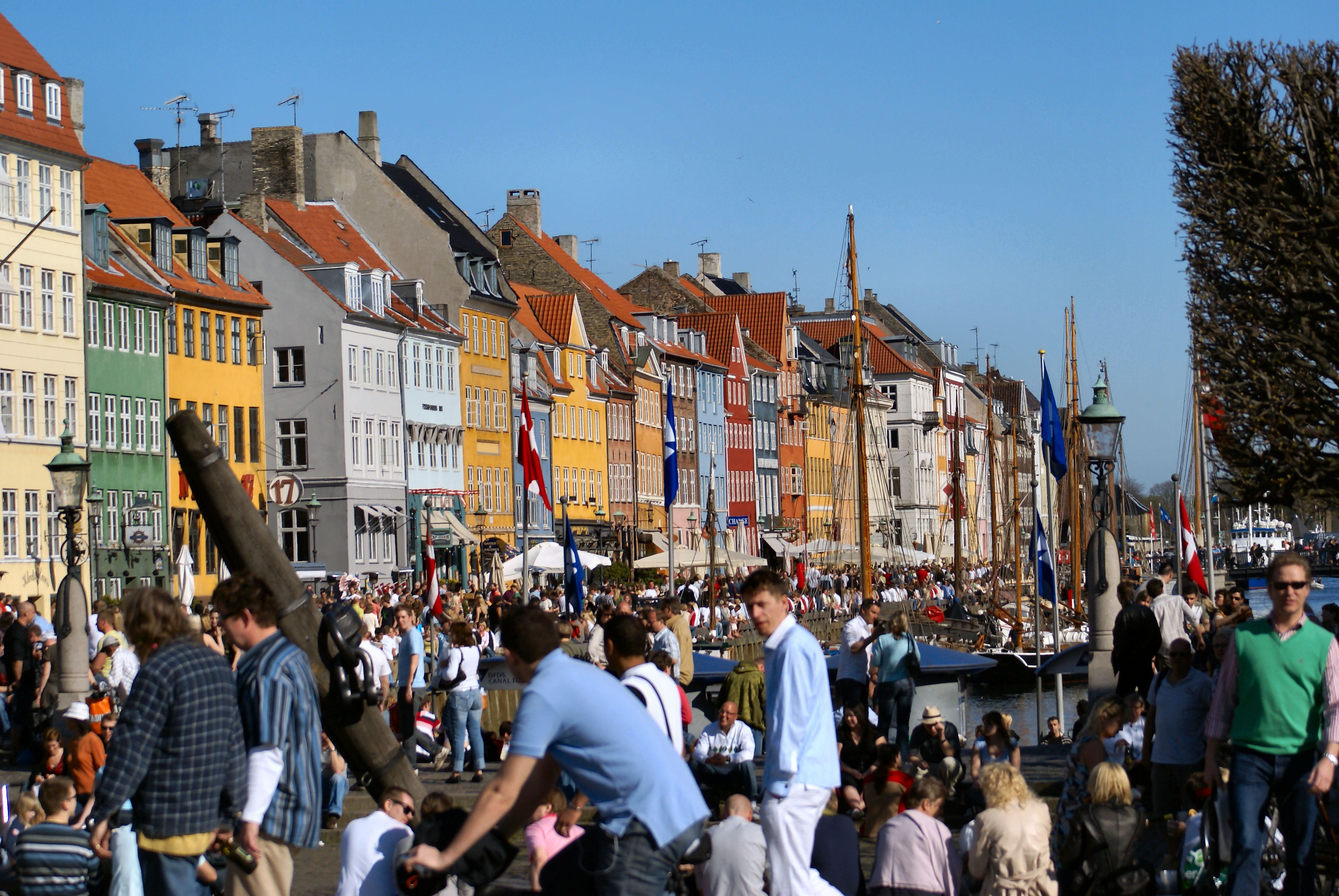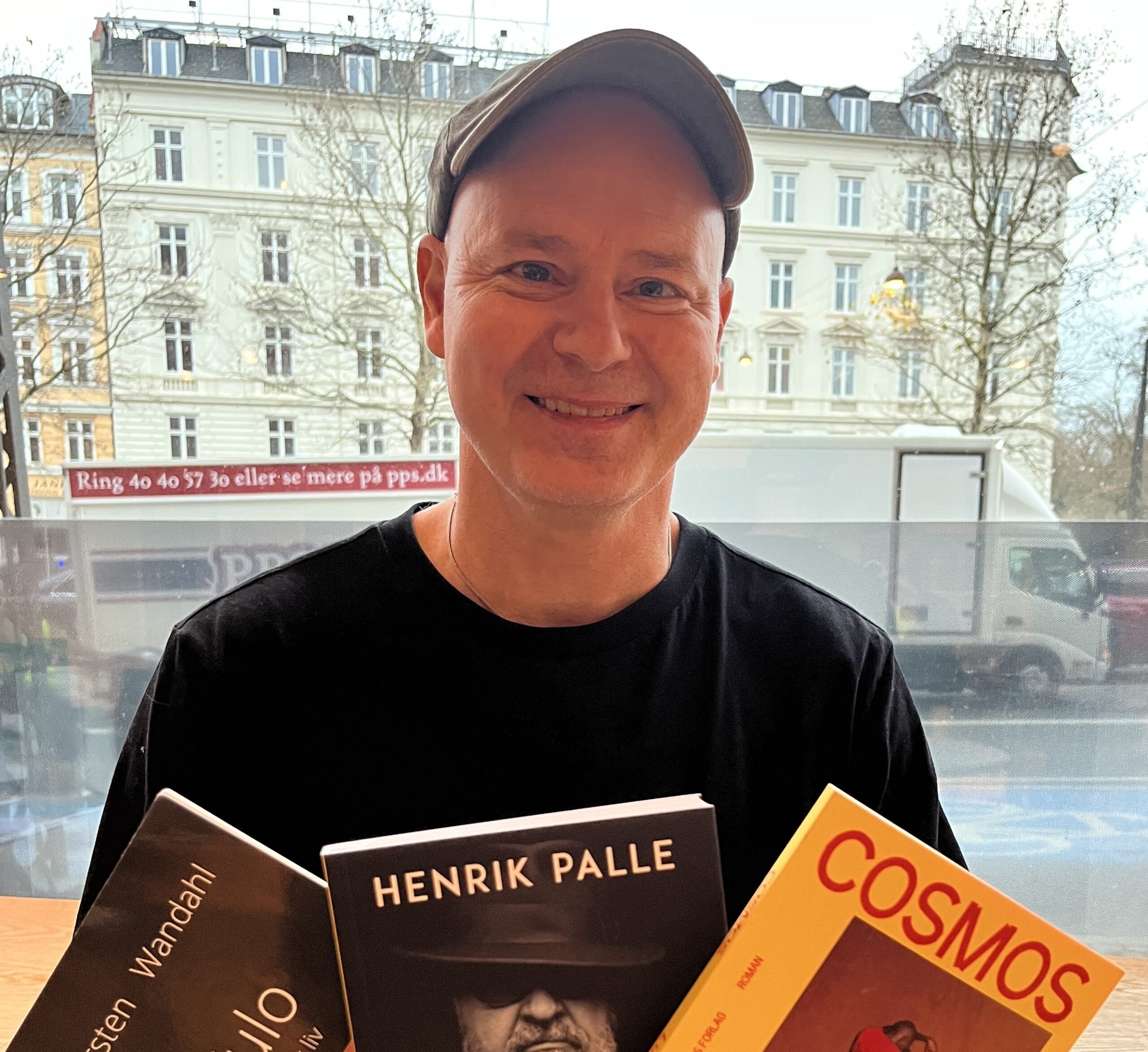 Although it premiered in England last year, The Deep Blue Sea’s somewhat belated Copenhagen premiere is perfectly timed considering the city’s current 1950s-themed Golden Days festival. Danish audiences can now finally sink their teeth into this austere but brilliant, quiet but powerful melodrama set in 1950s London. The period flavours are impeccable, the cast shines, and the musical leitmotifs are haunting and varied – from Samuel Barber’s Violin Concerto to the classic ‘You Belong to Me’, belted out by 30 sentimental workingmen in a pub. The latter made me feel like I’d just returned from the Second World War and that the world was about to soon wake up again.
Although it premiered in England last year, The Deep Blue Sea’s somewhat belated Copenhagen premiere is perfectly timed considering the city’s current 1950s-themed Golden Days festival. Danish audiences can now finally sink their teeth into this austere but brilliant, quiet but powerful melodrama set in 1950s London. The period flavours are impeccable, the cast shines, and the musical leitmotifs are haunting and varied – from Samuel Barber’s Violin Concerto to the classic ‘You Belong to Me’, belted out by 30 sentimental workingmen in a pub. The latter made me feel like I’d just returned from the Second World War and that the world was about to soon wake up again.
But most of all, it’s the wit and emotional ferocity shining through the storyline and dialogue that make The Deep Blue Sea so memorable and bracing. Credit is due to the excellent writer-director, award-winning, idiosyncratic Terence Davies (The House of Mirth), but also of course to the playwright Terence Rattigan from whose celebrated 1952 play the film is adapted.
Davies’ film is a bafflingly raw and complex portrait of three hugely different characters and, at an abstract level, of the frustratingly unreliable nature of love. It wouldn’t be wrong to call it a love triangle on top of a dilemma that reflects the post-war state of the nation. The dilemma is in fact so central that it lurks in the title (try to throw in ‘devil’). More importantly perhaps, The Deep Blue Sea is candid and wise enough to further Rattigan’s criticism against 20th-century English middle-class values − fear of emotional commitment, terror in the face of passion, and apprehension about sex.
The world has, of course, changed in many ways since the 1950s, but art is timeless and continues to be one of the great lenses through which cultural problems are made intelligible. Here the key issues are of Shakespearean proportions, and the characters walk a tightrope between life and death with conformity and boredom underneath. For instance, why is the idea of love so inexplicable in terms of logic and reason? How does one keep a passionate outlook in a world bent on extinguishing passion? And then this one, which I did not see coming: what’s a man’s proper response when, while kissing and undressing his adoring girlfriend, he finds a suicide letter in her pocket?
The film opens in a Britain that is for the moment Great no longer. Rather, it’s bankrupt as an economy and exhausted as a culture and world power. It’s a time of rationing and privation. Forty-year-old Hester Collyer (a supremely radiant Weisz – The Constant Gardener), has just defied all propriety and left a comfortable life with her stuffy but intelligent husband William (Beale – Orlando), to live with her boyish lover, an ex-RAF pilot played by Hiddleston (Midnight in Paris). But swapping boredom and a divorce-averse husband for hot passion with little underneath would in those days take its toll on anybody, let alone a psychologically unstable person. Hester’s ‘modern’ vision and assuredness have grown out of her existential malaise and weakness. But for the two men in her life, her irresistible grace and beauty, combined with her self-destructive tendencies, constitute a tragedy.
Because the dialogue is so pristine and the premise so relatively simple, they function as a prism through which the pain, regret, hurt and anger of the characters pass with stunning clarity. The maddening force of Hester’s beauty was one thing that impressed this reviewer – and which a more complex plot would likely have muddled. Dramatically observed and poignantly acted, this tells the story of a woman who risks everything for love – and of the fear of loneliness that drives her.
Deep Blue Sea (11)

Dir: Terence Davies; UK/US drama, 2011, 98 mins;
Rachel Weisz, Tim Hiddleston, Simon Russell Beale, Ann Mitchell, Jolyon Coy
Premieres September 20
Playing at Grand Teatret and Vester Vov Vov











